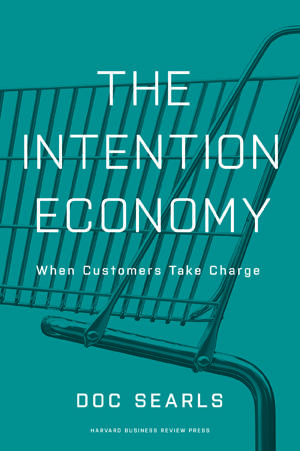
Free markets should value free customers. Today's mass markets still value captive ones. Some of us are starting to fix that.
I've been writing for Linux Journal since 1996, and putting my learnings to work along the way.
For example, in 1998, when a bunch of geeks got together and decided to expand the free software conversation to include a broader category they called open source (www.catb.org/~esr/open-source.html), I watched—and learned—in amazement as their strategy succeeded, in spades. Before February 1998, “open source” was hardly uttered outside a few specialized circles, such as the military. Thanks to Eric S. Raymond and other hacker evangelists, the term became common parlance throughout civilization.
So, a year later, when I got together with three other guys and put The Cluetrain Manifesto up on the Web (cluetrain.com), our first thesis was “markets are conversations”, in part because we saw it proven already. That summer, when we expanded the Web site into a whole book, we said this in Chapter Four:
What's more, these new conversations needn't just happen at random. They can be created on purpose. “We hackers were actively aiming to create new kinds of conversations outside of traditional institutions”, Raymond says. “This wasn't an accidental byproduct of doing neat techie stuff; it was an explicit goal for many of us as far back as the 1970s. We intended this revolution.”
Nice job.
Above Cluetrain's 95 theses, was an alpha clue, written by Chris Locke and addressed to marketers who were busy failing to understand how profoundly this new thing, the Internet, changed markets by making its human occupants—and not just marketers—more powerful. It said this:
we are not seats or eyeballs or end users or consumers. we are human beings and our reach exceeds your grasp. deal with it.
More than any other single line, that adrenalized us. It also placed Cluetrain clearly on the side of people. As Jakob Nielsen put it to me at the time (in words close to exactly these), “You guys defected from marketing, and sided instead with people in their fight against marketing.” (We were all techies, but three of us were also marketing wretches, fed up with the whole thing.)
When Google Books made possible search across countless books, I was able to observe with it the number of books in which the word “cluetrain” appeared. For years the number increased by an average of one per day, until it reached five thousand, where it stands. Google's meter is pegged there.
Yet for all the successes of free software, Linux, open source and Cluetrain (in that order), a problem persists. As human beings, our reach does not yet exceed the grasp of marketers. And, in many ways, the problem we saw at the height of the dot-com bubble is worse today, as we are lifted by marketing gas to the height of a new bubble variously called “Facebook”, “social media”, “big data” and “personalized advertising”.
So, in 2006, when I was given a fellowship with the Berkman Center for Internet and Society at Harvard University, I decided to launch a development project there. The purpose of the project was to give human beings a reach that exceeded marketers' grasp. We called it ProjectVRM (blogs.law.harvard.edu/vrm), in which the last three letters stood for Vendor Relationship Management. The term was meant as the customer-side counterpart of Customer Relationship Management, the $18 billion enterprise software and services business that gives the world call centers, junk mail and other ways of creating distance between customers and the companies that purport to serve them. The idea wasn't to fight CRM, but to engage it—and organizations of all kinds—from the customer side, by providing individuals with means for both independence and engagement.
As of today, there are dozens of VRM development efforts, operating in dozens of countries. All are still at the narrow end of the adoption curve, but it's clear where they're all headed. Once VRM succeeds, I believe, we will enjoy an Intention Economy, based on what each of us intends as sovereign human beings participating in a free and open marketplace. In it I claim that free customers will prove more valuable than captive ones, because our reach will outperform vendors' grasp—and render that grasping obsolete.

So, starting a couple years ago, I began work on a book titled The Intention Economy: When Customers Take Charge, for Harvard Business Review Press, based on progress in VRM development. It came out in May of this year, and it's available in all the usual places and forms, including digital and audio ones. With permission of the publisher, I would like to share with you one chapter from the book. There are other chapters that actually go into free software, open source, Linux and other topics more typical of Linux Journal, but mostly what I do in those chapters is leverage the stuff I learned here, along with the rest of you. This chapter is one that visits a larger problem rooted in the ethos of Business as Usual, especially on the Web.